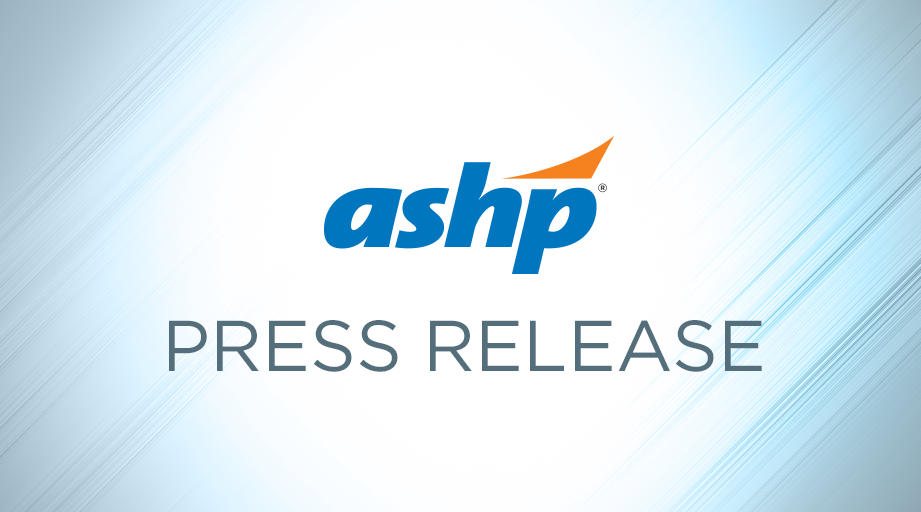
Hosted by American Hospital Association, American Society of Anesthesiologists, American Society of Clinical Oncology, ASHP (American Society of Health-System Pharmacists), and Institute for Safe Medication Practices
On September 20, a coalition of health care leaders will host a summit, “Drug Shortages as a Matter of National Security: Improving the Resilience of the Nation’s Health Care Critical Infrastructure.” The meeting will examine vulnerabilities in the supply chain, U.S. dependence on foreign-sourced pharmaceutical ingredients, disaster planning and response efforts, and risk factors associated with pharmaceutical manufacturing and distribution.
The invitation-only summit is being convened by the American Hospital Association (AHA), American Society of Anesthesiologists (ASA), the American Society of Clinical Oncology (ASCO), ASHP (American Society of Health-System Pharmacists), and the Institute for Safe Medication Practices (ISMP) at ASA’s Washington, D.C., headquarters.
“These unprecedented and dangerous shortages of drugs are affecting 98 percent of physician anesthesiologists across the country with potential serious consequences to our patients’ safety and quality of care,” said ASA President James D. Grant, M.D., M.B.A., FASA. “At this summit, we will work with important stakeholders on this issue to stimulate preparedness and response efforts and explore the potential national security risk posed by these shortages.”
The daylong meeting will bring together representatives from clinician groups, industry and supply chain entities, and government officials to discuss weaknesses in the production and supply chain infrastructure and risks of dependency on foreign-sourced pharmaceutical ingredients. Participants will identify supply chain vulnerabilities, define the roles and responsibilities of the public and private sectors for preparing for and responding to shortages, and propose solutions to ensure supply chain security and continuity in the event of a disaster or attack.
“The persistent shortages of critical, lifesaving medications already dangerously interfere with patient care and place a tremendous strain on daily operations in hospitals across the country,” said ASHP CEO Paul W. Abramowitz, Pharm.D., Sc.D., (Hon.), FASHP. “We look forward to working with the summit participants to develop actionable solutions that will ensure that patients can depend on a secure and stable supply of medications.”
Drug shortage subject matter experts are available to speak with media by inquiring with the media contacts listed below.
About the AHA
The AHA is a not-for-profit association of health care provider organizations and individuals that are committed to the improvement of health in their communities. The AHA is the national advocate for its members, which include nearly 5,000 hospitals, health care systems, networks and other providers of care and 43,000 individual members. Founded in 1898, the AHA provides education for health care leaders and is a source of information on health care issues and trends. For more information, visit www.aha.org.
About ASA
Founded in 1905, the American Society of Anesthesiologists (ASA) is an educational, research and scientific society with more than 52,000 members organized to raise and maintain the standards of the medical practice of anesthesiology. ASA is committed to ensuring physician anesthesiologists evaluate and supervise the medical care of patients before, during and after surgery to provide the highest quality and safest care every patient deserves. For more information on the field of anesthesiology, visit the American Society of Anesthesiologists online at asahq.org. To learn more about the role physician anesthesiologists play in ensuring patient safety, visit asahq.org/WhenSecondsCount. Like ASA on Facebook; follow ASALifeline on Twitter.
About ASCO
Founded in 1964, the American Society of Clinical Oncology, Inc. (ASCO®) is committed to making a world of difference in cancer care. As the world’s leading organization of its kind, ASCO represents nearly 45,000 oncology professionals who care for people living with cancer. Through research, education, and promotion of the highest-quality patient care, ASCO works to conquer cancer and create a world where cancer is prevented or cured, and every survivor is healthy. ASCO’s Conquer Cancer Foundation supports the Society by funding groundbreaking research and education across cancer’s full continuum. Learn more at www.ASCO.org, explore patient education resources at www.Cancer.Net, and follow us on Facebook, Twitter, LinkedIn, and YouTube.
About ASHP
ASHP represents pharmacists who serve as patient care providers in acute and ambulatory settings. The organization’s 45,000 members include pharmacists, student pharmacists, and pharmacy technicians. For more than 75 years, ASHP has been at the forefront of efforts to improve medication use and enhance patient safety. For more information about the wide array of ASHP activities and the many ways in which pharmacists advance healthcare, visit ASHP’s website, www.ashp.org, or its consumer website, www.SafeMedication.com.
About ISMP
The Institute for Safe Medication Practices (ISMP) is an independent, nonprofit charitable organization that works closely with healthcare practitioners and institutions, regulatory agencies, consumers, and professional organizations to provide education about medication errors and their prevention. ISMP represents more than 30 years of experience in helping healthcare practitioners keep patients safe, and continues to lead efforts to improve the medication use process. For more information on ISMP, or its medication safety alert newsletters and other tools for healthcare professionals and consumers, visit www.ismp.org.






